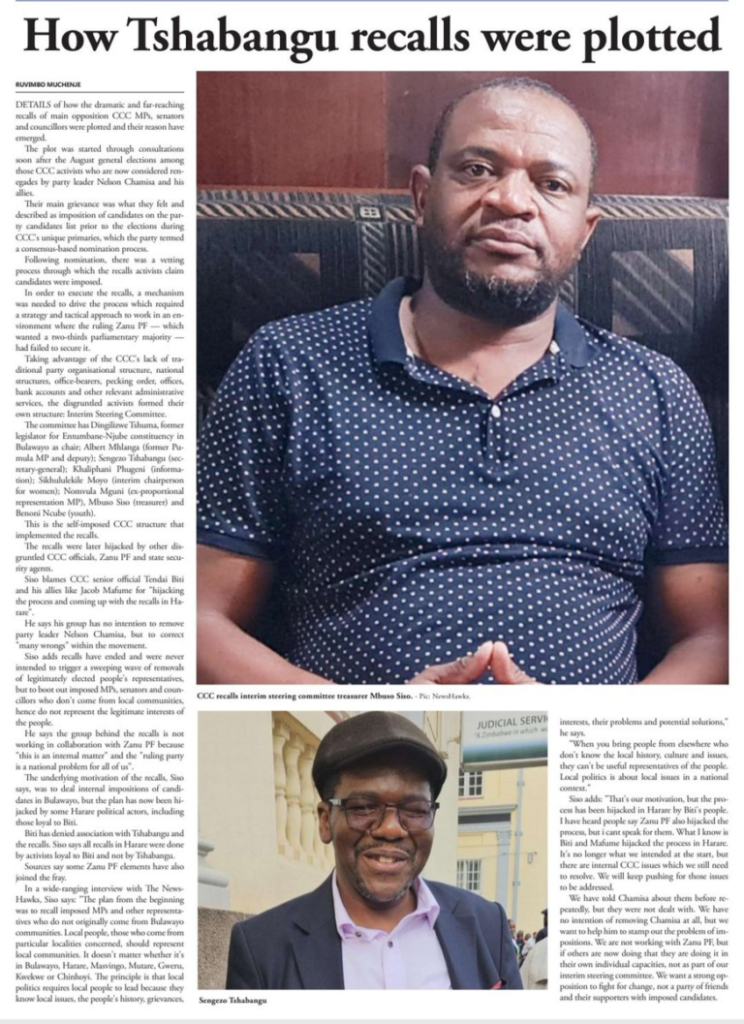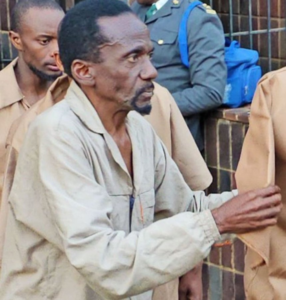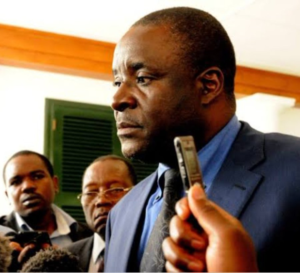A HOUSE DIVIDED: UNPACKING THE TURMOIL WITHIN ZIMBABWE’S MAIN OPPOSITION

In the tumultuous arena of Zimbabwean politics, the Citizen Coalition for Change (CCC), the country’s principal opposition party, has emerged as the nucleus of controversy and discord. Recent portrayals in the media have highlighted the establishment of an interim steering committee within the CCC as a fresh and unexpected turn in the saga of the party’s internal strife. Yet, such representations are not only misleading but also significantly oversimplify the reality. The inception of this committee is not a new development but has been a central figure in the narrative of the party’s internal conflicts, especially in the upheavals caused by member recalls that have fragmented the CCC.
The committee is led by Dingilizwe Tshuma, a former legislator for the Entumbane-Njube constituency in Bulawayo. It has played a critical role in orchestrating the recalls that have not just disrupted, but severely fragmented the party, rendering a once unified entity into disarray. The consequences of these internal expulsions have been profound, changing the party’s internal political landscape and casting doubts over its future trajectory.
This committee is composed of a group of seasoned and influential political figures within the CCC. Among them are Albert Mhlanga, the former Pumula MP and his deputy; Sengezo Tshabangu, serving as the secretary-general; Khaliphani Phugeni, responsible for information; Sikhululekile Moyo, the women’s chairperson; Nomvula Mguni, a former proportional representation MP; Mbuso Siso as the treasurer, and Benoni Ncube, who oversees the youth wing. Each member’s extensive experience and intimate knowledge of the party’s inner workings have made them pivotal actors in the ongoing drama.
Initially targeting a handful of elected representatives in Bulawayo, these recalls were later expanded and manipulated by other CCC officials, members of the ruling Zanu PF party, and partisan state security agents. Their objective was unmistakably clear: to use the recalls as a mechanism for significant political disruption and destabilization, aiming to undermine the opposition from within.
The ramifications of these maneuvers have been stark. The CCC, once viewed as a promising alternative to the incumbent ruling party, now finds itself deeply divided. The internal conflict has not only eroded the party’s organizational framework but also tarnished its public image. This turmoil has left supporters and observers alike in a state of confusion and disillusionment, questioning the party’s competency in self-governance, much less in leading a nation.
However, it’s imperative to recognize that the discord within the CCC transcends mere internal power struggles or ideological differences. It mirrors the larger political manipulations at play in Zimbabwe, with the involvement of Zanu PF officials and state security agents highlighting a more malevolent intent: to exploit the opposition’s vulnerabilities to perpetuate the current political dominion.
In essence, the crisis within the CCC is a complex interplay of internal politics amplified by external forces keen on exploiting the party’s frailties. The steering committee, contrary to recent portrayals, has been a critical element in this turmoil from its onset. Grasping this context is crucial for anyone attempting to comprehend the predicament facing the CCC and, by extension, Zimbabwe’s broader political landscape. As the nation progresses, resolving these internal disputes within the CCC will be key in defining its political future and, subsequently, Zimbabwe’s overall direction.





